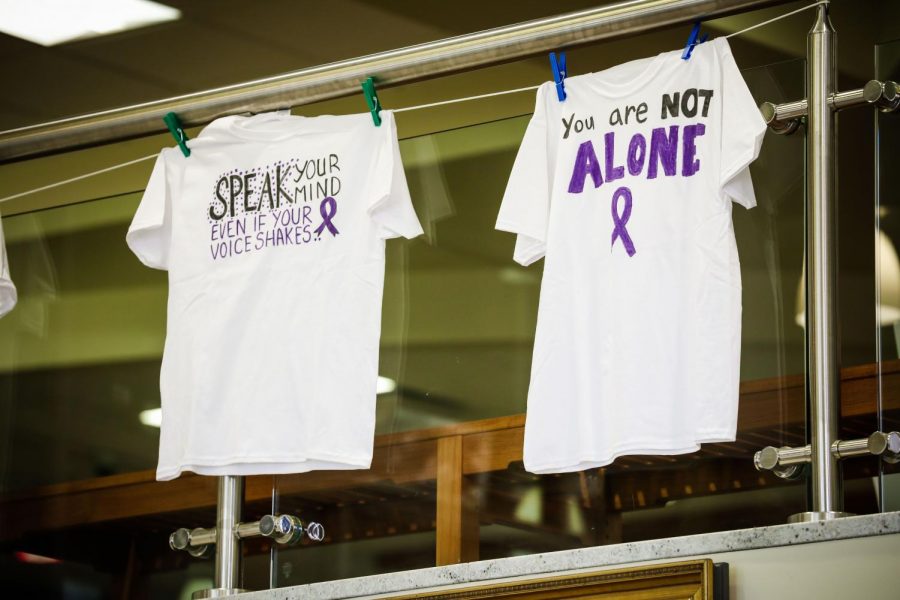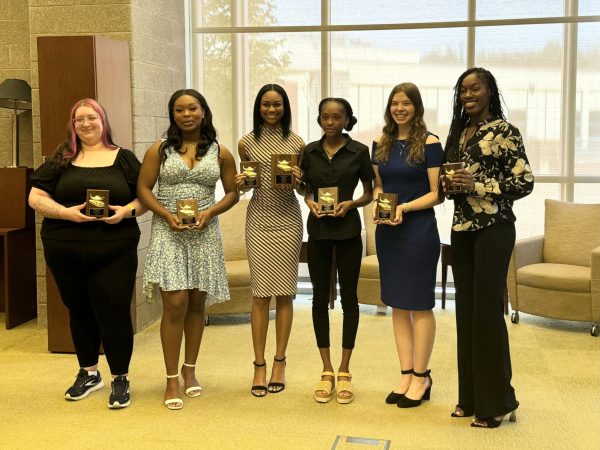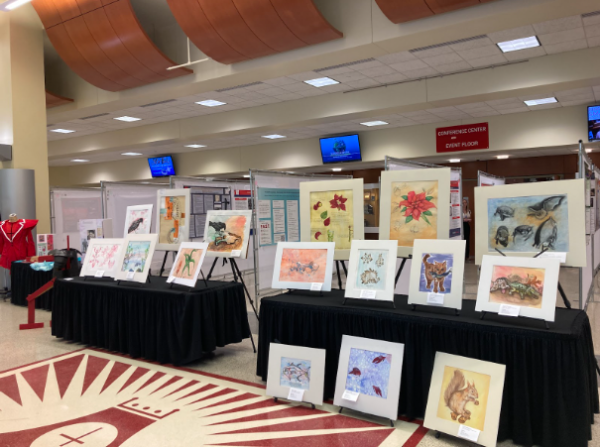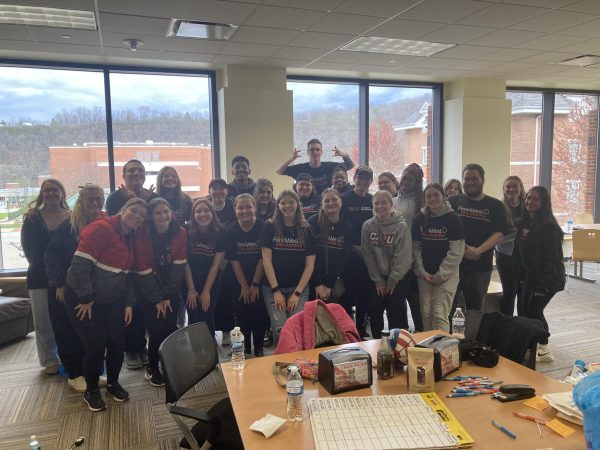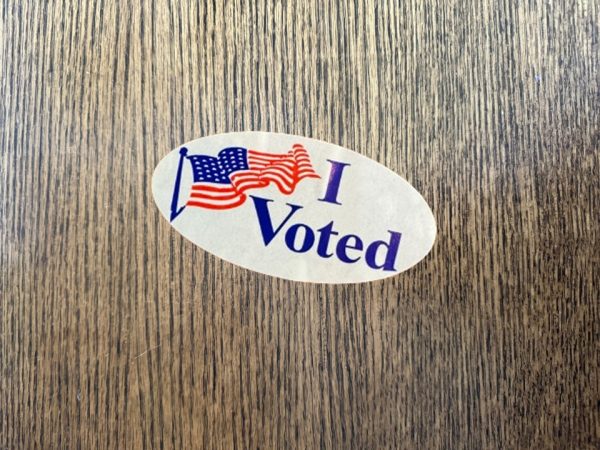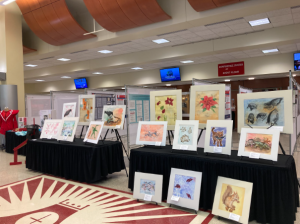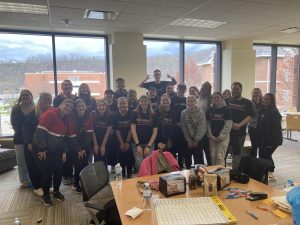“Clothes Line Project” brings awareness to domestic violence
Shirts of the End Violence Center’s Clothesline Project hanging in the Natali Student Center, Oct. 18, 2021. The project is a visual display that addresses the issue of domestic violence and brings awareness to its impact.
October 21, 2021
In honor of Domestic Violence Awareness Month, the End Violence Center provided a way for survivors of domestic violence and awareness supporters to anonymously raise their voices against this issue. On Oct. 14 from 11-1 p.m. there was a table set up and run by junior Noah Kendall, who works at the Women’s Center and End Violence Center, that hosted The Clothes Line Project. This is a project where students could decorate shirts in honor of domestic violence awareness that would later be displayed somewhere in Natali.
“It’s also for survivors of any type of violence or abuse to speak up and show how strong they are, how much they have been changed by this, and to speak to their perpetrator or the abuser without actually talking to them,” Kendall stated.
The table had 25 plain white shirts for students to decorate with paint markers. This starting number would serve as a test to see how interested students are in this type of project and to see if more shirts need to be ordered due to interest. At the end of the month, students have the option to either collect their shirts to keep or donate them to the End Violence Center for them to hang up in their office, which is located in room 117 in the Natali Student Center.
“It shows the beautiful side of people who are still beautiful regardless of any abuse or violence that came against them,” Kendall said.
Also this month, the End Violence Center has posters with red flags posted around campus. The posters have information on red flags people should watch for signs of domestic violence.
First year graduate student Lauren Lavezoli expresses that events like The Clothes Line Project, as well as the red flags around campus, are a good visual for a victim to see around campus.
“It’s like you have a place to go,” Lavezoli says. “There are people who are willing to help you and are putting that out there.”
As well as this, every Thursday of this month is Purple Thursday, where students are encouraged to wear purple clothing to support domestic violence awareness and post a picture online. When posting online, they are encouraged to express why they support domestic violence awareness and tag the Cal U Women’s Center. They will then be entered to win a gift card.
“[Domestic violence] can look like anything,” says Lavezoli. “It can be the obvious of someone getting beat up by a family member or partner. Or even just the little things.”
“[Domestic violence] is anything to break you down,” says Mikaela Davis, a freshman political science major.
Domestic violence is not always intimate partner violence. Kendall expresses that domestic violence can come from anyone towards anyone: friendships, strangers, and even family members.
“It can happen to any type of person, regardless of gender,” Kendall expands. “A person inflicting violence and abuse is inflicting violence and abuse. Just because it’s a woman to a man, a nonbinary person to another nonbinary person, whoever it may be, violence is violence.”
There are different resources on domestic violence on the Cal U Women’s Center’s Facebook and Instagram. Both the Cal U Women’s Center and End Violence Center are located on the first floor of the Natali Student Center. Students can also contact a victim advocate by calling (724)-938-1594. The Counseling Center is another resource for victims, current or previous, looking for help.
“[Domestic Violence Awareness Month] gives a voice to victims and people who may still be struggling and trapped in those relationships, whether it be a partner, parent, or sibling,” Lavezoli says.

